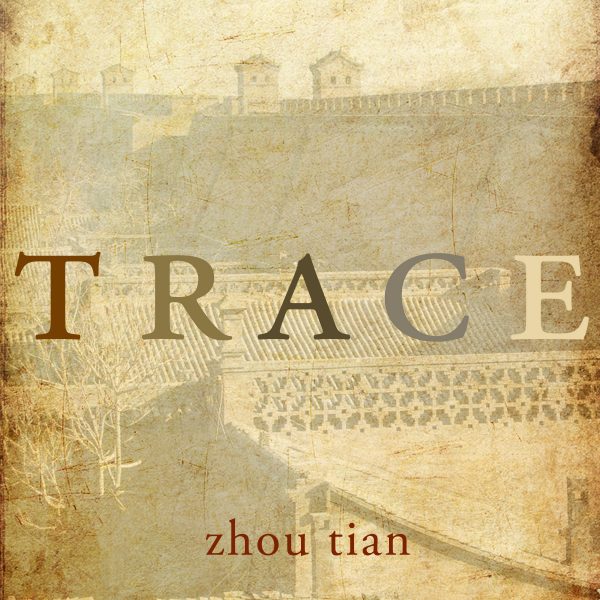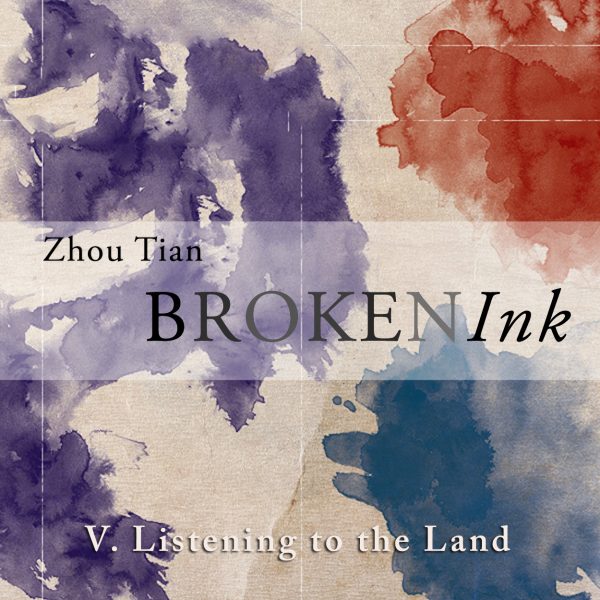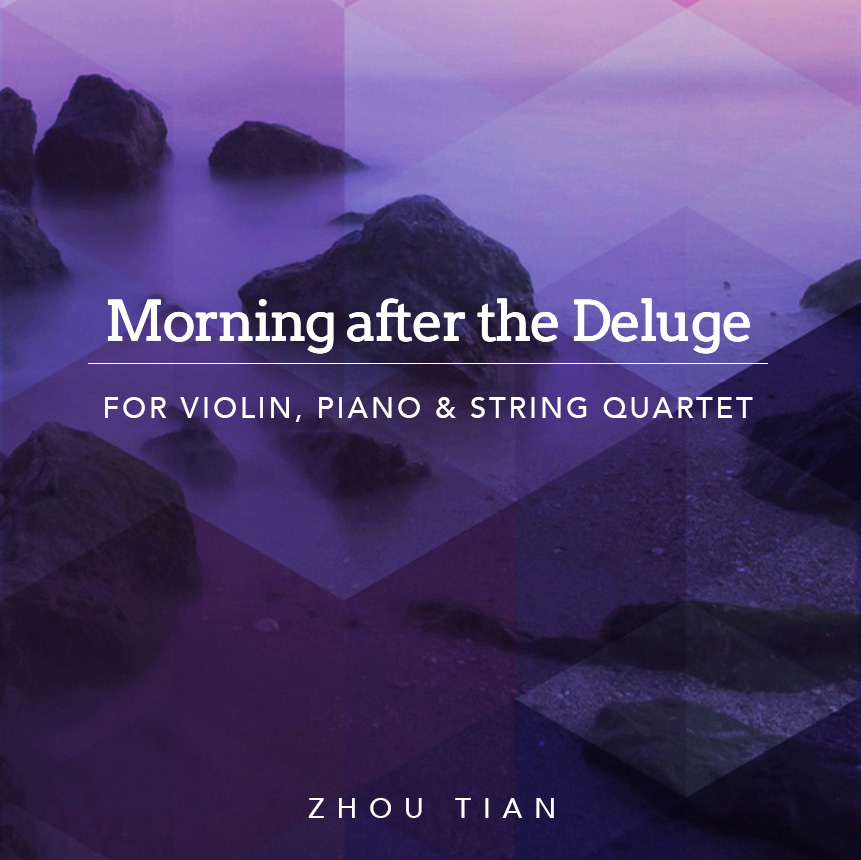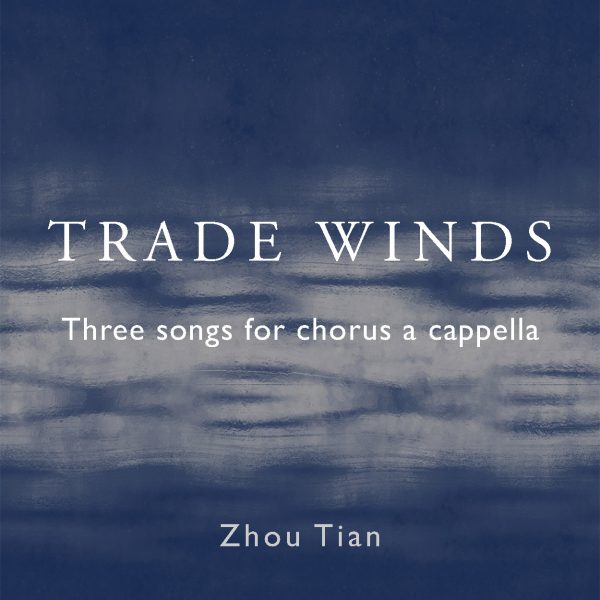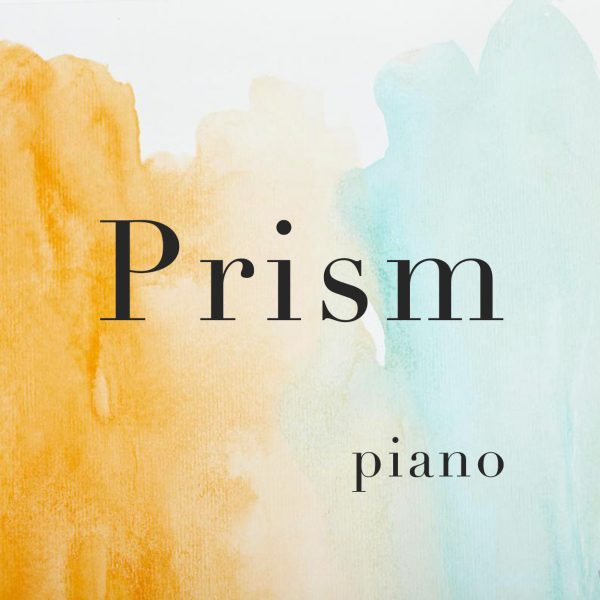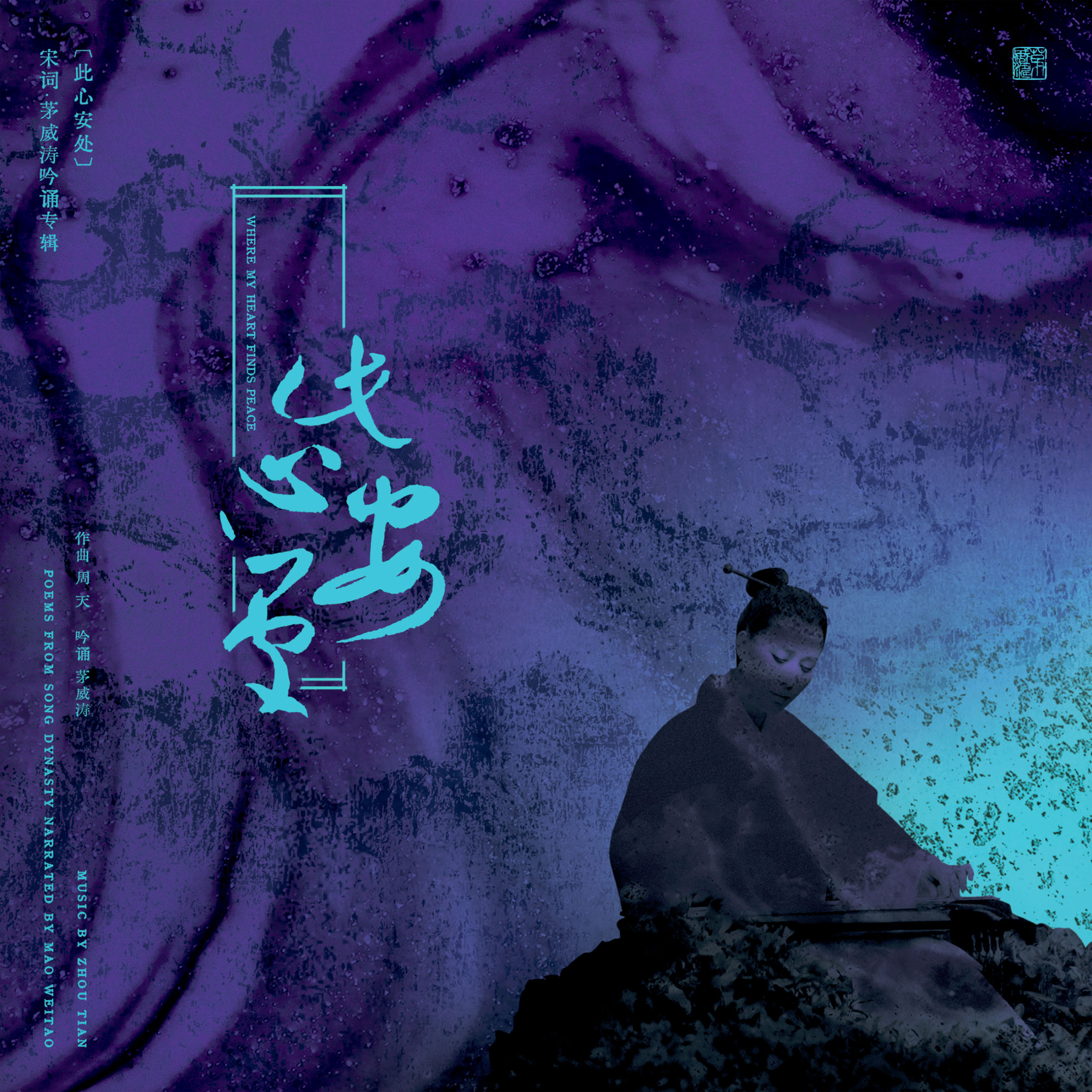Watch & Listen
The following are from selected works only. To hear Zhou’s entire catalogue please head over to the individual pages under WORKS
Concerto for Orchestra was written as a love letter to the symphony orchestra, with passages ranging from epic to extremely intimate…more
Commissioned by The Cincinnati Symphony & Louis Langrée
Nominee, 60th GRAMMY Awards (2018) for Best Contemporary Classical Composition
III. Seeker’s Scherzo
II. Indigo (exp.)
IV. Intermezzo – Allegro (exp.)
“Stunning…tonal and engaging, it was an ambitious showpiece in four symphonic movements.”
—The Cincinnati Enquirer
“He is unafraid of monumental gestures, but at the same time he wastes nothing, whether notes or our time itself…There are always touches of fine craftsmanship. The strings’ luster made me wish I could stop writing and just listen.”
—American Record Guide
Concert opener for the Shanghai Symphony Orchestra’s 140th season. US premiere by the New York Philharmonic. “The New York Philharmonic presented the U.S. premiere of a spectacular new piece by Chinese-American composer Zhou Tian…The piece sustains a concise, beautifully ordered narrative, yet is full of surprises.” (Blogcritics) More
Experiencing Spain for the first time and learning about the stories of Spanish legend El Cid inspired me to compose this 9-minute thrill ride…Commissioned by Dolce Suono Ensemble, with a grant from the National Endowment for the Arts. More
“Zhou Tian’s Viaje fused the composer’s Chinese American sensibility with the lore of ancient Spain so convincingly that the exotic flute solos for Stillman sounded like the most natural thing in the world.”
—The Philadelphia Inquirer
“Viaje is a prime example of 21st-century global multiculturalism…The flute passages and orchestration evoke all the gallantry and tenderness of the subject.”
—Broad Street Review
“There is a fascinating blend of Spanish fire and Chinese-American stylistic colours going on here, with romantic expressiveness in the central section framed by animated phrases and rhythmic syncopation – all in all a highly enjoyable piece.”
—Music Web International
I. Vivo (0:00) · II. Amoroso (10:37) · III. Con brio (18:42)
“Scored lushly, there are hints of my musical lineage from Barber to Piston to traditional erhu (Chinese violin) music, as I sought a coexistence of clarity of form with passionate expression, exploring the richness of orchestral timbre yet always embracing purity of line…” Written for the Shanghai Isaac Stern International Violin Competition. More
Also available: version for violin & piano
I. Irises (0:00) · II. Capriccio (9:30) · III. Arioso (13:02) · IV. Toccata (19:00)
“From tranquil meditations to wild rituals, my flute concerto explores the diversity of musical styles through reflection on the flute’s long and rich heritage. The work begins with Irises – the flower makes me think about the flute: sensuous and yet strong…” Written for Mimi Stillman and commissioned by a consortium of orchestras including “The President’s Own” United States Marine Band/Orchestra. More
I. Pulse (0:05) · II. Promise (9:35) · III. D-O-N-E (16:49)
Commissioned by 13 American orchestras in commemoration of the 150th Anniversary of the Transcontinental Railroad’s completion. More
“Mr. Zhou’s roughly 20-minute ‘Transcend’ is divided into three distinct sections, each of which evokes some aspect of the railroad, its construction or its history. The first movement, ‘Pulse,’ opens lushly then turns more ominous, with a pulsing, motoric momentum. Bursts of percussion and brasses suggest dynamite blasts; a suspended cymbal, a train bell. Opening with a flute, the ‘Promise’ section brings to mind China, but the music soon effectively blends the sounds of East and West with a tinge of nostalgia. ‘D-O-N-E,’ the finale, is propulsive, its title taken from the Morse code signal, rendered on the trumpet here, that was sent as the final spikes were driven and the railroads connected. The movement’s concluding hell-for-leather fanfare naturally brought the nearly full house at Abravanel Hall roaring to its feet.
“Works like…Mr. Zhou’s orchestral piece accomplish two important things: They remind us of how we got from there to here, and they refine that history by paying belated tribute to contributors who might otherwise be forgotten.”
—The Wall Street Journal
“The third movement, ‘D-O-N-E,’ in a stroke of genius, used the Morse code for the word “done” to compose a rhythmic motive that would unify the rest of the composition…The audience approved of the premiere with a standing ovation.”
—Omaha World-Herald
I. Brush (0:00) · II. Lift (9:48) · III. Reflect (13:44) · IV. Dance (23:25)
Brush. Lift. Reflect. Dance. These are four movements that infuse Flowing Sleeves, a new cello concerto inspired by costumes of Chinese opera, premiered by the acclaimed Deutsche Grammophon Artist, cellist Jian Wang. More
“The musical language was rich, opulent, luxurious, infinitely varied and, at times, profoundly beautiful [Jian] Wang is a compelling advocate of the work and his performance shone with an almost mystical intensity. Conductor Jessica Cottis’ own jacket sleeves looked tight and restrictive, but her hands seemed to mould the orchestra around every nuance and gesture Wang produced. This was a lovely performance of what deserves to become a classic of the cello concerto repertory.”
—Marc Rochester, the Straits Times (Singapore)
I. Vivo (0:00) · II. Amoroso (10:44) · III. Con brio (19:25)
Commissioned by the Shanghai Isaac Stern International Violin Competition. Versions: concerto for violin and orchestra | violin & piano
I. Brush (0:00) · II. Lift (10:55)
Brush. Lift. These are two movements that infuse Flowing Sleeves, a cello sextet inspired by costumes and traditional practices of Chinese opera…Co-commissioned by the Juilliard School and the Tianjin Juilliard School. More
Concert opener that teems with lyricism and rhythmic vitality, all within 10 minutes. The piece explores the intersection between cultures reflecting Zhou’s own background. More
The Palace of Nine Perfections strives to explore the sumptuous color through a rich orchestral palette. Winner of the Minnesota Orchestra Composers Institute (+Commission Award) and American Composers Orchestra Underwood Readings. More
A Thousand Years of Good Prayers – Chinese proverb: a good relationship takes a thousand years of good prayers to bring about. Winner, The Indianapolis Symphony Orchestra Glick Award. More
“The first half of the evening [at the Houston Symphony] was an unqualified success. Zhou Tian’s attractive A Thousand Years of Good Prayers effectively communicated the goals of the composer, which he eloquently and succinctly described from stage…Zhou’s harmonic language and orchestration mix Ravel and Barber with a hint of his native China, albeit without the edgy grit of Chen Yi or flamboyant theatricality of Tan Dun. Still, the piece feels first and foremost like an honest musical utterance, which is important in today’s day and age.”
—ConcertoNet
A fierce and colorful rhapsody inspired by American artist Cy Twombly’s 1989 painting of the same title…More
A chorale conceived on a cold, winter night. Available for strings orchestra, string quartet, wind ensemble, or saxophone quartet.
Red Trees, Wrinkled Cliffs | Full Work
“Trace” tells a musical story of a disappearing past due to industrialization. It features prominent solo passages from the concertmaster – a musical narrator of the piece…Commissioned by The Cincinnati Symphony. More
“It made for one of the most creative – and most enjoyable – concerts heard at Music Hall this season. Zhou’s “Trace [originally titled Poem from a Vanished Time],” a CSO commission, opened the concert on a lush, neo-impressionistic note. The work recalls a vanished China, one replaced by industrialization. Concertmaster Timothy Lees was the soloist, giving the work its heart in two aria-like episodes…A playful, folk-like tune inserted toward the end sealed it with nostalgia. Zhou, 30, was present to receive the crowd’s warm applause.”
—The Cincinnati Enquirer
“The night’s opener was more absorbing and substantial than any overture you could name. ‘Trace,’ by MSU faculty composer Zhou Tian, was a dense, multilayered tapestry of memories and images meant to evoke ancient places and ways of life bulldozed under China’s relentless industrialization…A kaleidoscopic series of carnival outbursts and dance patterns suggested a limitless mosaic of life. The orchestra negotiated a complicated series of twists, turns and shifts in mood with a quiet grace that gave Zhou’s vibrant style an amber glow. Fleeting episodes featured an intricate battery of percussion and a butterfly cloud of woodwinds that flickered distinctly and memorably, despite the bigger forces surging around them.”
—Lansing CityPulse
Five-part orchestral suite inspired by five poems from the Song dynasty.
V. Listening to the Land
After “Forever in Happiness (Reminiscing the bygone days)” by Xin Qiji (1140 –1207). Remembering heroes when the end of a dynasty is near…
Winner, The Washington Metropolitan Philharmonic Ulysses S. James Composition Competition (2018)
Full Work
“The music was lush, much like a flowing river, and it was clear from the outset that Tian has a good ear for the orchestral palette. Throughout the piece, there were numerous instances of raindrop effects, often from the harp, which were contrasted by melodic solos from clarinetist Pascal Archer, English hornist Mitchell Kuhn, oboist Nathan Mills, and violinist Basia Danilow. The quartet of horns were consistently clean, and the cello section often had expansive melodies of their own which were well played. The five-member percussion section was kept busy in the two movements which were more forceful (depicting powerful rivers and tidal waves), and the sharp and jagged chords and accents from the orchestra were always together. Principal cellist Alistair MacRae’s graceful solo aided the orchestra in bringing the work to a close in an instrumental sunrise.”
—Princeton Town Topics
Susie Park, violin
Meng-Chieh Liu, piano
Lily Francis, Xi Chen, violins
Teng Li, viola
Yumi Kendall, violoncello
Hear full work
III. Strange how we can walk (in LA)
Song cycle about traveling, commissioned and premiered by Chanticleer.
Full Work
“Wild Plum Blossoms Fall”「念奴嬌·野棠花落」ft. Jordan Dodson, guitar.
From the crossover album “Where My Heart Finds Peace” (「此心安處」宋词·茅威涛吟诵专辑) featuring Chinese Opera superstar Mao Weitao narrating and singing poetry from the Song Dynasty.
Composed, conducted and produced by Zhou Tian.
interviews & Intros
The making of Transcend (Utah Symphony)
The making of Transcend (Reno Philharmonic)
The making of Flute Concerto (“The President’s Own” Marine Chamber Orchestra)
Shanghai Symphony’s Vogue-inspired “72 Questions” (in Mandarin)
Rise intro
Sinfonia intro
String Quartet No. 1 intro
Morning after the Deluge intro
